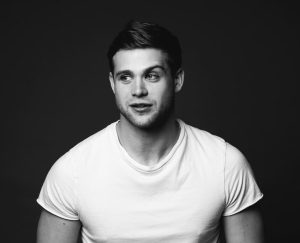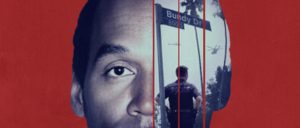Witnesses are usually outside of their element when being questioned by an attorney. What is different for them in this scenario?
I always tell my clients that testimony – whether it is deposition or trial – is a game with its own unique set of rules. These rules are unlike anything they have ever come across. No matter how much they may agree or disagree with them, they have to learn the rules and play by them if they want to prevail.
Their “job” is to testify confidently in this tightly constrained arena. One of the biggest challenges is the restrictive nature of testimony. Businesspeople especially are used to having some degree of control. But, at trial, they never play offence. Their job is only to answer questions. It can feel like they are continually at the mercy of someone else’s agenda and timetable. In deposition, it is much more restrictive because the goal is to tell as little as possible.
Additionally, witnesses need be on their best behaviour throughout. This can be especially hard in cases where your witness is angry, frustrated or feels justice is not on their side.
How can an attorney ensure their witness is prepared for these elements?
In my experience, the biggest challenge for attorneys is in diagnosing their witnesses’ weaknesses. What is keeping them from delivering case-winning testimony? Is the client scared, worried, talking too much, defensive, abrasive, having a hard time remembering important details, inarticulate, using problematic body language? In my decades of experience, these are only symptoms of deeper problems. Telling the witness to stop talking, to stop being afraid, work harder at remembering, or sit up straight and make better eye contact – does not work! You must dig deeper and diagnose where the surface symptoms come from. Then and only then can you resolve these problems.
I always tell my clients that testimony – whether it is deposition or trial – is a game with its own unique set of rules.
Here is an analogy: a patient shows up at the doctor’s office with tingling or numbness in their fingers. To diagnose the problem, the doctor has to look beyond the fingers for the genesis of the problem. Generally, they look for nerve damage in the elbow or neck. The same theory is true with witnesses.
Yes, that takes time and finesse. So, I developed a “diagnosis sheet” I use with new clients. It is divided into three sections: 1) what is going on in their thinking, 2) what is showing up in their actions or behaviour, and 3) what emotions are affecting their behaviour or communication. There are five or six key symptoms in each area. Email me and I will be happy to send you a copy. Early and proper diagnosis is the only way I know to solve the underlying problem and keep it from rearing its ugly head under the duress of deposition or trial.
How important is confidence here? How can a witness work on their confidence before trial?
Confidence is the single biggest – and most elusive – challenge for witnesses. So often my clients are searching for the “right answer,” the right thing to say. As though, if they knew what opposing counsel was going to ask, then everything would be ok. However, it is not about knowing the right answer. It is about feeling confident that no matter what question is asked they can provide a thoughtful answer that supports their case.
Luckily, confidence is a skill that can be built. It is done by learning a new skill, practicing, evaluating progress, refining, trying again. That is what the best athletes, musicians and actors do. The world-class pole vaulter runs the approach, plants the pole and vaults. Over and over. Each time evaluating what worked, what did not, refining their technique. Each time building confidence. Guitarists learn notes, then chords, playing them over and over. Practicing the nuances of the instrument, becoming more confident in achieving the sound they want.
The same holds true with witnesses. They can learn new skills and practice them to build confidence. For example, here is how I work with clients to learn how to answer briefly, not lecturing. I would ask: “Tell me about your last vacation.” One client went on for eight minutes (really)! My reply: “Make it shorter.” He cut it down to 3 minutes. My reply: “Make it shorter.” Again and again. Until he finally said: “We went to Hawaii.” We worked on simple questions for an hour until no matter what the question was, he could pause, think, and confidently answer in a very short sentence. Now we applied his new-found skill and greatly enhanced confidence to the tough questions for trial. He aced his testimony. I use this drill-the-skill technique to help witnesses learn to listen to questions, learn to pause and think, and learn to breathe and control emotions.
This kind of diligent practice builds confidence that shows up in dramatically improved body language, attitude, and overall impact of testimony.
Confidence is the single biggest – and most elusive – challenge for witnesses.
What are hijacking tactics and why should witnesses be aware of them?
The principle of hijacking is based on the witness’s brain’s fundamental need to protect them. When their brain senses any threat (from opposing counsel), it instantly jumps into survival mode. It shuts down all their higher-level logical thinking and brain power is focused on fight-flight-freeze defensive responses. Their body is flooded with hormones that narrow vision, decrease hearing and force blood flow to body systems in order to defend themselves. It can take from 20 minutes to two hours to regain logical thinking, which is devastating to a witness on the stand.
The four key triggers to watch for from opposing counsel are 1) aggression, 2) humiliation, 3) confusion and 4) negative facial expression. Sometimes it is a constant assault during cross exam. But with a tender witness I have seen it as simple as: “Mrs Howard. Really! Are you sure it was Tuesday the 15th when you signed the agreement, not Monday or Tuesday the 22nd? Wasn’t that important enough that you would have remembered?” while counsel shakes his head, huffs and rolls his eyes. I have seen artful counsel hijack sophisticated and articulate medical experts and turn them into defensive, blabbering fools.
Countering hijacking is tough. It is not passive. It takes active training. Training your witness to recognize the triggers, then develop their own active internal dialogue to neutralise the effect of the triggers. Yes, it can be time-consuming. But it will save your case.
What part does body language play here?
The spotlight is on your witness. Every movement, every nuance, from the top of their head to the tip of their toes is being judged – whether that is by opposing counsel, the jury, or the judge. In just the first few seconds, people make a hundred unconscious nondecisions about your witness – are they smart, honest, trustworthy, approachable, open or closed, guilty or innocent?
Body language, together with tone of voice, makes up their nonverbal communication, which is about 90% of what is communicated. It is the yardstick by which their words are judged. Which means that if there is any incongruency between body language and words, the listener (jury) always defaults to body language. A scared or worried witness can be interpreted as lying. I have seen a jury ignore tentative or meek testimony from an expert. In another case, a jury took a dislike to a curmudgeonly-behaving plaintiff, ruling in favour of the much weaker case of the defendant.
Do you think all witnesses should be trained?
When there are millions of dollars on the line or the fate of a business or child custody or a reputation, why would you not do everything you can to ensure the best possible outcome? I have never met a witness who could not benefit from some polishing. Even sophisticated businesspeople and experienced expert witnesses can always get better. That is why athletes, musicians and actors have a coach – to show them where and how they can fine-tune their performance.
How can you train witnesses to build new habits in order to be ready for trial questioning?
Habits are all about repetition, building new neural pathways in their brain. The more they do something, the more ingrained it is. And the easier it is to depend on it in a stressful situation. Start early – three to four weeks before testimony. Practice diligently until it is second nature.
Deborah Johnson, MC
President of High-Stakes Communication, LLC
High-Stakes Communication, LLC
Address: 1634 E Echo Lane, Phoenix, AZ 85020-3922
Email: deborah@high-stakescommunication.com
Telephone: +1 602 216 0049
About Deborah Johnson
It’s straight-forward. My passion is helping your witnesses communicate with influence and impact. I’m a six-time EMMY Award-winning television producer with a Masters degree in cognitive psychology. I’ve developed strategies and proven practices to help your witnesses think clearly and answer articulately. To help resolve emotional and behavioral issues. To give them new skills to testify with confidence.





















